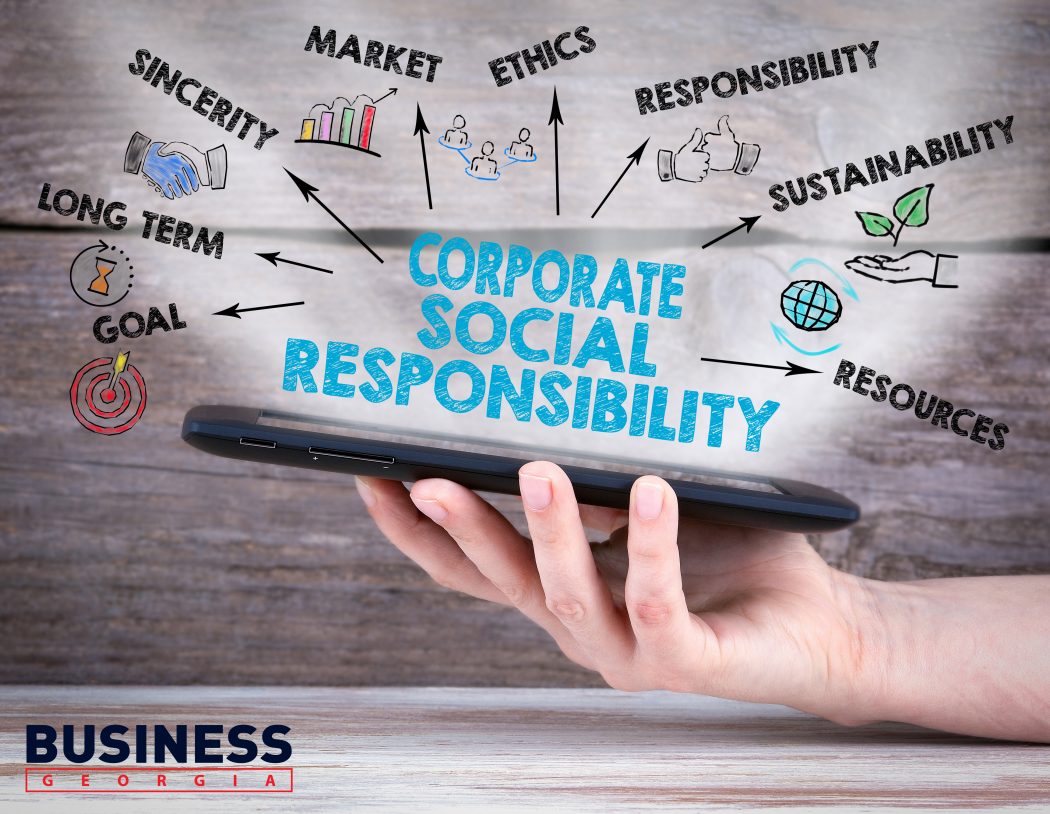When it comes to business practices, we believe that the strong company may not grow without successful social and sustainable policies. That is why Business Georgia magazine has taken an initiative to spotlight these matters by ranking the Corporate Social Responsibility of businesses. We believe it will help local and foreign companies operating in Georgia to progress with the benefit for community and environment.
People socialize. And it is, by all means, a permanent process of receiving and distributing norms, customs and ideologies. They provide an individual with the habits and skills which are vital for contributing within its own society. Hence, any healthy society also considers ethics as essential mechanism of communication between individuals. No doubt, it is an inevitable aspect of everyday life, and same comes with business activities and their methods. That is why the idea of Social Responsibility continues to be so actual for today’s society as a whole. “Thinking good thoughts is not enough, doing good deeds is not enough, seeing others follow your good examples is enough.”
Douglas Horton
To start with, the term Social Responsibility itself is the suggestion that each of us has an obligation to benefit not only for ourselves, but also for society at large – to co-operate for maintaining the balance between ecosystem and economy. Respectively, this includes everyday life activities that should, besides their initial purpose, sensitively contribute to the main principles of community well-being: in social, economic, cultural and environmental frameworks. Should be said that the interest towards of what happening in community and participation in local problem solving are the key factors which drive people for becoming socially responsible. “The participation in local problem solving is one of key factors which drive people to become socially responsible” Social responsibility can be “negative”- in case when individuals resist from acting according the main principles of SR. Or it can be “positive” – meaning that person is the “proactivestance” and not only performs such good deeds as volunteering, recycling and others but also makes them a lifestyle.
Lord Holme and Richard Watts were first to define what Corporate Social Responsibility is. In the “World Business Council for Sustainable Development’s” publication“Making Good Business Sense” they stated that it is “…the continuing commitment by business to behave ethicallyand contribute to economic development while improvingthe quality of life of the workforce and their families as well as the local community and society at large.” If individuals are becoming more socially responsible, in response to this Corporations and Companies need to become more socially responsible to meet consumer demand. The International Organization for Standardization (ISO) states: “In the wake of increasing globalization, we have become ever more conscious not only of what we buy, butalso how the goods and services we buy have been produced. Environmentally harmful production, child labor, dangerous working environments and other inhumane conditions are examples of issues being brought into the open. All compa nies and organizations aiming at long-term profitability and credibility are starting to realize that they must act in accordance with norms of right and wrong.” So what is really important in regard to CSR is to measure and evaluate it in reference to business. It is a good idea, as said before, to do this to stimulate those for performing socially responsible activities, as for any strong company may not grow and raise its reputation without their performing
In order to define the main aspects of business Social Responsibility we’ve divided CSR into five rough categories: Charity and Philanthropy, Sustainable Environment Creation & Care, Community Development, Raise of Social Awareness (Social Education) and Creating Shared Value.
Companies involved in philanthropy make financial contributions to charitable, educational and health-related organizations. This process can help them in assistance of poverty reducing, promoting and delivering education, and even eliminate diseases. It may also involve attention and care for the people with physical and/or developmental disabilities by, besides the monetary aid, raising awareness in the community.
Businesses can contribute to the environment and sustain it by several measures, such as reducing and eliminating the hazardous pollution from production, as it can cause harm to the nature and public. It doesn’t matter whether or not the existing Law policies regulate it – social responsibility is voluntary and demonstrates if enterprises care of their impact for the world around. It also includes charity for nature – for example, tree planting, parks and recreation spaces creation funding, implementing educational programs of the subject and raising awareness on mitigation measures.
To develop a positive public profiles, companies often resort to creating better environment to live and work. It comprises aligning with other appropriate institutionsto cooperate with. “…my life belongs to the whole community and as long as I live, it is my privilege to do for it whatever I can. I want to be thoroughly used up when I die, for the harder I work the more I live.”– these wise words of George Bernard Shaw make a clear point of what involvement in Community Development means. In particular, one of the good deeds dedicated to the community would be to form the foundation that would assist to deliver education and learning, as well as distribution of some sort of profit percentage for charity of any kind.
In this case on of the goals of socially responsible businesses is to popularize (even through exerting some pressure) the basic standards of Social Responsibility to other companies to adopt the socially responsible behavior themselves. This may be done through different ways, for example, by cooperation with media to and expose potentially harmful activities of organizations and monitoring organizations’ obedience with ethical business standards. This will raise awareness in public and create an educational dialogue, reaching the goals of Social Responsibility.
Creating Shared Value (CSV) is a business concept suggesting to draw deep links between the business strategies and corporate social responsibility. Meaning that the competitiveness of a business and the well-being of the communities around it are mutually dependent. Since companies need a productively functioning workforce it is in their interests to thrive for society’s development. For example, companies may sponsor the projects which aim to deliver health services, food quality research, or water resources distribution.


